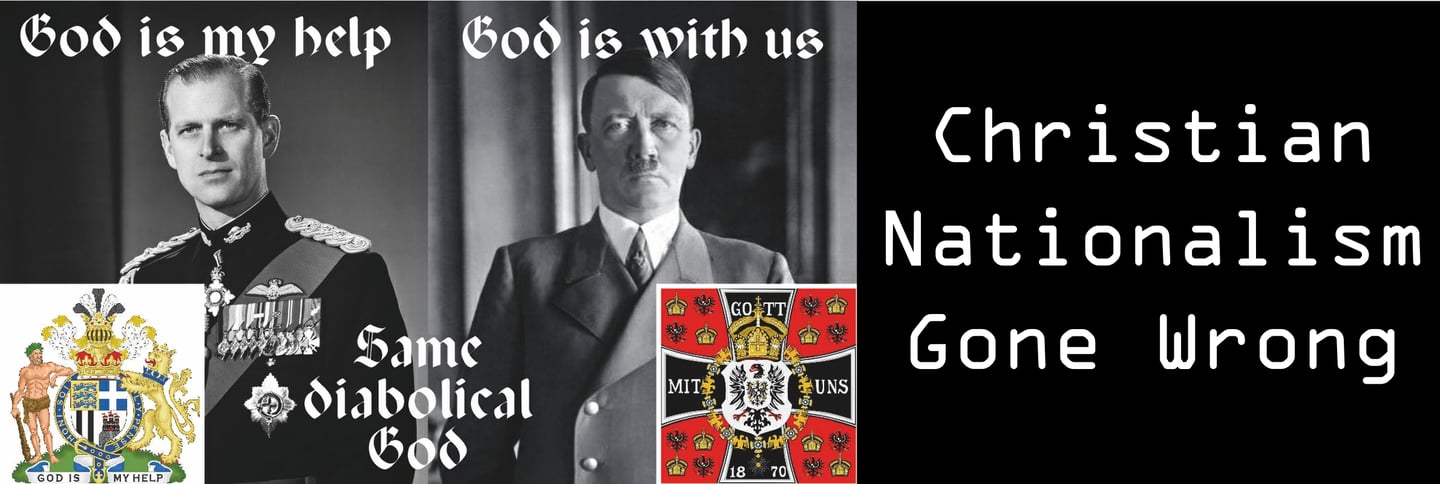Understanding the Bible as a work of confusion

The reason for this website is bound up in the two words 'Christ' and 'Bible'.
These two words can be taken as metaphors for two realities, i.e.the individual and society respectively, and for the conflicts that arise between them.
In the 1960's the actor Patrick McGoohan repeated the phrase 'I am a name, not a number. I'm a free man' in a series of episodes on TV called 'The Prisoner'. The series illustrated the dilemma facing all organised societies – how far should individual freedom be allowed to interfere with the common social good and vice versa. The series attempted to heighten people's awareness of the tensions between individualism and collectivism. Personal liberty and communism. The two words also can act as metaphors for the freedom or the imprisonment of the mind. For, in an environment largely formed as constructions of social norms and conserving ruthless political power that preserves them, which are based on systems of control that have their origin in the imaginations of the privileged few who for centuries have been calling themselves by various titles to lord it over the unwilling on 'their land', the emergence of an enslaved society is hardly a surprise.
The mind's capacity for imagining forms of society that preserve this kind of power and control is as imprisoned as those it imagines it owns. Ownership of 'things' is an imagined reality in a multi- dimensional universe. Only the dead own 'things'. "For, what does it benefit a person if he gains the whole world but forfeits his soul."
Even in the short history of humanity (compared to eternity) one can see the ever present power of the human mind to imagine systems of control that are more about imprisonment of the human soul than freedom. An economic system designed by anal hoarding Olympians that imprisons in debt all the runners up.
The word 'Bible' represents the story of collective consciousness (a culture) a people imprisoned in their historical narrative of the way they collectively see their location in time and space as something infinite, yet insanely projected onto the cosmos as its centre. The word 'Christ' on the other hand represents the story of an individual who came to offer a key to makers of cultural narratives, imprisoned in a linear world of time, to help them unlock their minds and release their CREATIVE potential for pursuing creative rather than destructive purposes. In this context the word 'Bible' stands for a humanity grounded in a bewilderingly stagnant and hackneyed narcissistic science of human dominance that triumphs in the physics of dominating its own kind which is why it is perpetually destructive and consequently spiritually PARALYSED.


The Prisoner was a British television series in the 1960s created by Patrick McGoohan, who stars as Number Six, a nameless British intelligence agent who is abducted and imprisoned in a mysterious coastal village after resigning from his position
The Bible is a metaphor for closed minds, blinkered by an educational system controlled by the Sadducees of one dimensional space, where physical strength is the key to achieving expansion of material ownership of worlds. Biblical characters typify this dependency on a militaristic solution to overcome the enemies of titular ownership of land and resources by the few, who typically have minds that see assertive and aggressive physical power as the only means to achieving a successful physical expression of life.
It is a story of a spiritless mindset in which the war narrative becomes poetry, psalms eulogizing war without end and religious priests blessing the making of a seamless history of violence, murder, rape, pillage, carnage, destruction, trauma and of deep psychological scars lasting for generations. The Bible is a bibliography of lives utterly imprisoned in the sin of not believing in eternity. It is a story of the human race rejecting its own salvation. A salvation the Jews and their neighbours still reject today. Even Jesus' disciples lost the plot.
On the other hand Christ is a metaphor for almost everything repulsive to the 'I want it now generation'. To the quick fix military solution that harnesses individual human strength and corporate physical power to the machinery of education, media and entertainment, the narrative of Christ is an anathema, a regime of ideas and beliefs too analgesic for the philosophy of materialism and ownership of physical space.
In short, the Bible stands as a typical cultural narrative, describing the story of men and women in any age, in any culture, at any moment in time, who are focused entirely on the physical dimension of their human experience without giving a single thought for the eternal moral and personality implications of their existence in a multi- dimensional universe. It is a narrative of bloodshed, isolation and ignorance.
If you want to learn about what you possess, look at Christ, who spoke of possessions deliberately hidden from minds obsessed with material possessions, sex and death.


Verbal abuse that eventually led to physical abuse of Jesus’ body came from all types of people whose minds had been cultivated by centuries of worshipping, of giving worth to, a portrayal of God and man that was neither:
entirely right
nor entirely holy,
entirely perfect
entirely true
nor entirely divine.
